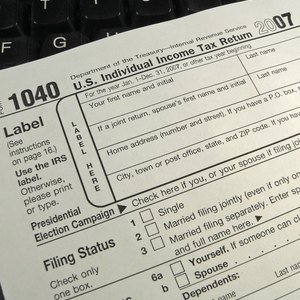
If you collected Social Security income while living in North Carolina this year, you may be wondering how to pay taxes on Social Security. The answer is that you may not have to pay taxes on your Social Security income. That's because Social Security and railroad retirement benefits are not taxed in North Carolina.
It's simply one of the perks of living in one of the more retirement-friendly states. North Carolina is one of 38 states without a tax on Social Security income as of 2020. However, there could still be a tax bill to cover if you drew income from other sources while also collecting Social Security payments in North Carolina.
Read More: Social Security Tax & Pensions
Social Security Income in North Carolina
You are generally entitled to take the deduction for your Social Security or railroad retirement benefits if you were taxed on this income on your federal return. At this point, the income was added to your tally for your federal adjusted gross income. Taking the Social Security deduction on your North Carolina state income taxes will likely increase your refund significantly.
When figuring out your tax situation for the year, start by getting a tally of your total Social Security retirement income for the year. That amount can be subtracted from your taxable income on your North Carolina income tax return. In fact, Social Security income is one of the deductible items that can be selected when you fill out North Carolina income tax Form D-400. Keep in mind that you won't be able to deduct your Social Security benefits on your North Carolina income tax return if they're not included in your current federal taxable income.
Read More: Public Pensions vs. Private Pensions
What Is Taxable for Retirees in North Carolina
While Social Security income is exempt from taxation in North Carolina, the state does not exempt pension incomes. That means that any pension you receive from an employer will be fully taxed. The same goes for withdrawals from retirement accounts.
As of 2020, only 14 states don't tax pensions. Those states are Alaska, Hawaii, Washington, Nevada, South Dakota, Illinois, Wyoming, Texas, Tennessee, Mississippi, Alabama, Florida, Pennsylvania and New Hampshire. Most of those states also don't tax IRA or 401(k) distributions. Additionally, a number of states around the country offer partial tax breaks for retiree benefits by only taxing up to a certain threshold.
Read More: What Is a Pension Plan?
How to Pay North Carolina State Tax on Social Security
While Social Security and railroad benefits income are fully exempt from taxes in North Carolina, that doesn't mean that you won't have to pay taxes on your retirement benefits from other sources. All income collected from pensions, 401(k) accounts, IRAs or other types of retirement accounts are all taxed at North Carolina's standard income tax rate of 5.25 percent.
Unfortunately, North Carolina doesn't provide tax exemptions for pensions and retirements accounts the way that some of its neighboring states do. If you're wondering how to potentially reduce the tax burden of taking distributions from retirement accounts, it can be smart to work with a financial planner to possibly switch your retirement savings to specific types of accounts that are more resilient against North Carolina's state taxes.
References
- NCDOR: Social Security and Railroad Retirement Benefits
- NCDOR: Tax Rate for Tax Year 2019
- Kiplinger: 14 States That Won't Tax Your Pension
- Social Security Administration. "SUMMARY of P.L. 98-21, (H.R. 1900) Social Security Amendments of 1983-Signed on April 20, 1983." Accessed Feb. 27, 2020.
- Social Security Administration. "Benefits Planner | Income Taxes And Your Social Security Benefit." Accessed Feb. 27, 2020.
- Social Security Administration. "Replacement SSA-1099." Accessed Feb. 27, 2020.
- AARP. "Which states tax Social Security benefits?" Accessed Feb. 27, 2020.
- Federation of Tax Administrators. "State Tax Agencies." Accessed Feb. 27, 2020.
- Social Security Administration. "Monthly Statistical Snapshot, January 2020." Accessed Feb. 27, 2020.
- Internal Revenue Service. "Roth Comparison Chart." Accessed Feb. 27, 2020.
- Internal Revenue Service. "Early Retirement Distributions and Your Taxes." Accessed Feb. 27, 2020.
- Internal Revenue Service. "Retirement Plan and IRA Required Minimum Distributions FAQs." Accessed Feb. 27, 2020.
- Internal Revenue Service. "Instructions for Form 1098-Q," Pages 1-2. Accessed Feb. 27, 2020.
- Internal Revenue Service. "Instructions for Form 1098-Q," Page 1. Accessed Feb. 27, 2020.
- Internal Revenue Service. "Internal Revenue Bulletin: 2014-30." Accessed Feb. 27, 2020.
Tips
- According to Kiplinger, 36 states do not tax Social Security benefits.
Warnings
- You cannot deduct Social Security or Railroad Retirement benefits on your North Carolina return if they are not included in your federal taxable income.
Writer Bio
Adam Luehrs is a writer during the day and a voracious reader at night. He focuses mostly on finance writing and has a passion for real estate, credit card deals, and investing.

